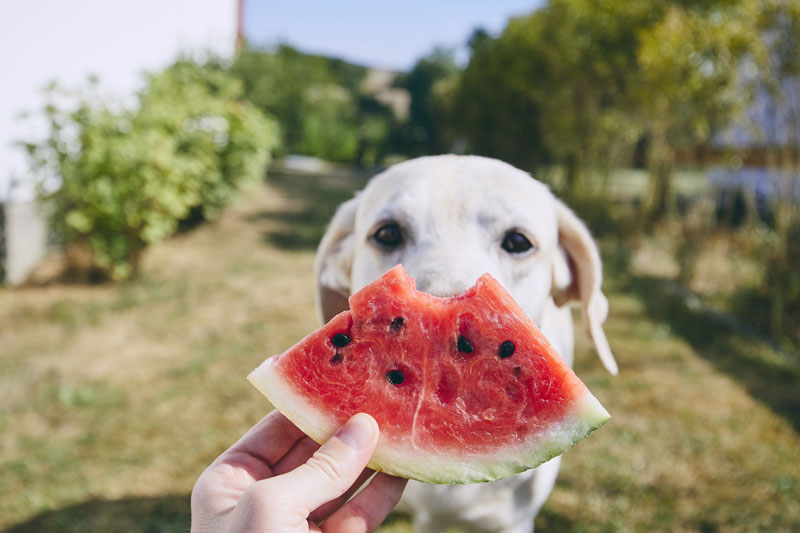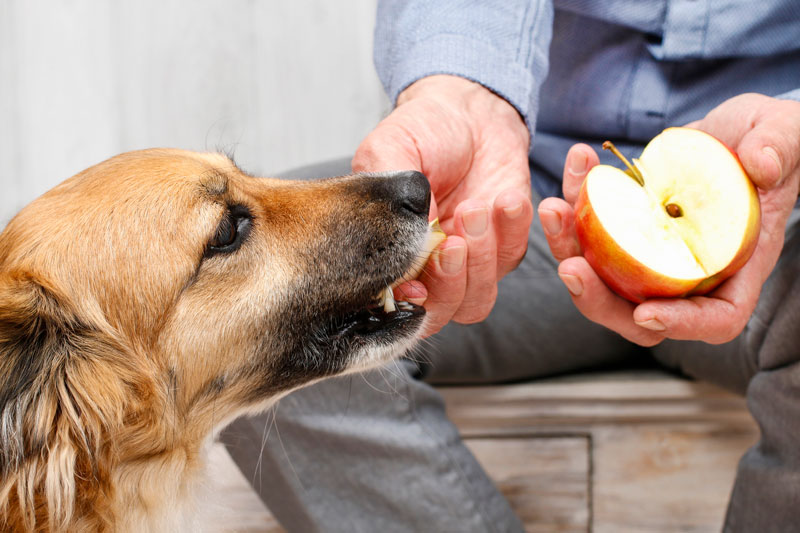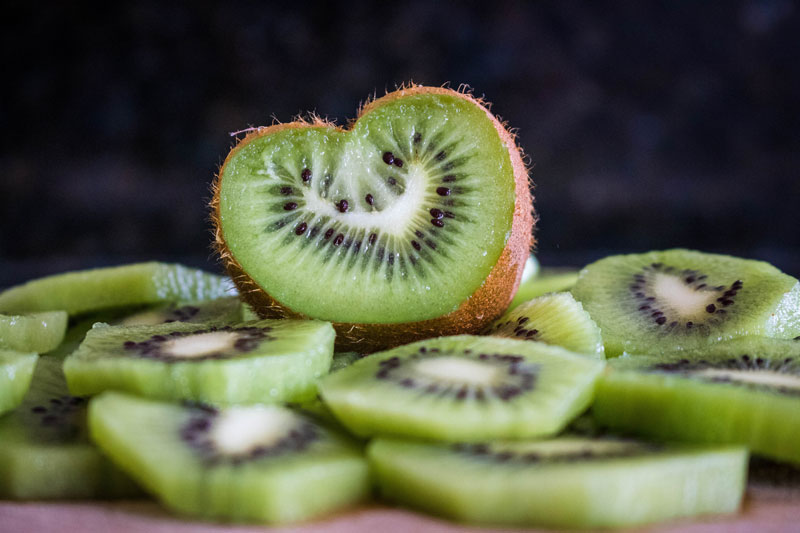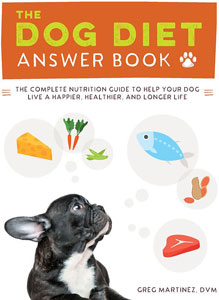Food & Diet
What Fruits Dogs Should Eat: The Ultimate List [Infographic]

Just as fruits are beneficial for us, they are mutually beneficial for a dogs diet!
They are packed with nutrients, vitamins, and antioxidants. Fruits are a great way to boost a dog’s immune system, support digestive functions, and give them healthier fur and skin. So we recommend adding some fruit to your dogs diet.
If you prefer to read the article instead of checking out the infographic below, just click here.

Here’s the ultimate list of fruits your dog can eat and why!
Table of Contents
Apples

Apples are a great source of vitamin A and C for your pooch. It is also a low-calorie snack, so no need to worry about your dog gaining weight. They contain high fiber and antioxidants which will aid in your dog’s digestive functions.
Even though you can feed your dog apples, be aware that they CANNOT eat the seeds or core. The seeds and core are harmful to your dog because they contain cyanide which if eaten over time can lead to accumulation of cyanide in their systems.
| Vitamins & Minerals | Benefits |
|---|---|
| Vitamin A | Supports immune function and healthy skin and eyes. |
| Vitamin C | An antioxidant that destroys free radicals, which harm healthy cells. |
Bananas

Bananas are packed with vitamin C, vitamin B6, and potassium. Since bananas are high in potassium they make for a much better treat than salty and fatty foods.
I don’t think I need to include this but don’t feed the peel to your dog. It isn’t necessarily toxic but can cause intestinal blockage and that will lead to a vet visit.
| Vitamins & Minerals | Benefits |
|---|---|
| Vitamin B6 | Generates glucose to regulate blood sugar and supports the nervous systems, immune system, and hormone functions. |
| Vitamin C | An antioxidant that destroys free radicals, which harm healthy cells. |
| Potassium | Supports healthy kidney, heart, and muscle function. |
Blackberries

Blackberries are a great source of antioxidants and omega-3s. Since they are high in antioxidants, they will aid in building a strong immune system. Plus, the omega-3’s will give your dog a shiny coat and healthier skin.
Every dog’s stomach is different and some have more sensitive stomachs than others. Try a few blackberries and see if they enjoy them. If so, you can add some blackberries in moderation to their diet or as a little treat.
| Vitamins & Minerals | Benefits |
|---|---|
| Vitamin C | An antioxidant that destroys free radicals, which harm healthy cells. |
| Omega-3 | Promotes healthy skin and coat. |
| Vitamin E | An antioxidant; helps support the immune system. |
Blueberries

Blueberries are known as a “superfood” for us and our pups. This is because they contain high amounts of antioxidants, vitamin C, phytochemicals and fiber. They are also low in calories!
If you have a senior dog, blueberries have been shown to reduce brain-aging and cognitive dysfunction.
| Vitamins & Minerals | Benefits |
|---|---|
| Phytochemicals | Helps to prevent cancer. |
| Vitamin C | An antioxidant that destroys free radicals, which harm healthy cells. |
| Vitamin K | Supports enzyme function and blood coagulation. |
Cantaloupe

Cantaloupe is loaded with many different vitamins and nutrients that are healthy for our pups. These nutrients include fiber, vitamin A, vitamin B6, vitamin C, and potassium. Vitamins A and C provide lots of health benefits for dogs, mostly in their role as antioxidants.
Since cantaloupe is mostly water, it’s a great way to rehydrate your dog without adding any extra weight.
| Vitamins & Minerals | Benefits |
|---|---|
| Vitamin A | Supports immune function and healthy skin and eyes. |
| Vitamin B6 | Generates glucose to regulate blood sugar and supports the nervous systems, immune system, and hormone functions |
| Vitamin C | An antioxidant that destroys free radicals, which harm healthy cells. |
| Potassium | Supports healthy kidney, heart, and muscle function. |
Cranberries

Before I give you all the nutritional value that cranberries offer, just remember, cranberries should be fed to your dog in small quantities in case of an upset stomach.
Cranberries are rich in antioxidants, low in calories, and high in vitamin C and potassium. Cranberries can aid your dog’s bladder health and reduce plaque buildup.
| Vitamins & Minerals | Benefits |
|---|---|
| Vitamin C | An antioxidant that destroys free radicals, which harm healthy cells. |
| Potassium | Supports healthy kidney, heart, and muscle function. |
Kiwi

Kiwis are packed with more potassium than a banana and vitamin C than an orange. They are a sweet and tasty snack for your dog. Just be mindful not to feed them a whole kiwi due to the high sugar content. We don’t want to add any extra weight which comes with its own health problems.
| Vitamins & Minerals | Benefits |
|---|---|
| Fiber | Improves colon health and helps with weight management. |
| Vitamin C | An antioxidant that destroys free radicals, which harm healthy cells. |
| Potassium | Supports healthy kidney, heart, and muscle function. |
Pears

When pears are given to your dog in moderation they are a perfect snack. Pears are filled with vitamin C, vitamin A, and fiber. Be sure not to give them the seeds or stem since they contain cyanide, which is harmful to dogs.
| Vitamins & Minerals | Benefits |
|---|---|
| Copper | Helps the body absorb iron and prevents anemia. |
| Fiber | Improves colon health and helps with weight management. |
| Vitamin C | An antioxidant that destroys free radicals, which harm healthy cells. |
| Vitamin K | Supports enzyme function and blood coagulation. |
Oranges

Oranges aid in boosting your dog’s immune system. They are packed with vitamin C. Remember not to feed your dog the orange peel’s as it can cause intestinal blockage. If you have a smaller dog, only feed them one to two slices, while a bigger dog can have a whole orange.
| Vitamins & Minerals | Benefits |
|---|---|
| Vitamin C | An antioxidant that destroys free radicals, which harm healthy cells. |
Watermelon

Watermelon is the perfect summer treat for your dog. Considering it is 92% water, it’s a great refreshing snack on a hot day.
Watermelon is full of healthy nutrients, including vitamin A, vitamin B6, vitaminc C and potassium. It’s packed with fiber which aids in your dog’s digestion. But just like all the other fruits on this list, make sure you only feed them in moderation due to the high sugar content.
When it comes to feeding smaller dogs watermelon, try to take out the seeds. The seeds could cause blockage in their digestive system. Just be safe, remove the seeds for all dogs. It might be some work but your dog will thank you for it. They love it!
| Vitamins & Minerals | Benefits |
|---|---|
| Vitamin A | Supports immune function and healthy skin and eyes. |
| Vitamin B6 | Generates glucose to regulate blood sugar and supports the nervous systems, immune system, and hormone functions. |
| Vitamin C | An antioxidant that destroys free radicals, which harm healthy cells. |
| Potassium | Supports healthy kidney, heart, and muscle function. |
The 90/10 Rule
We have one more little rule you should follow when adding fruits into your dog’s diet. Fruits are filled with natural sugar, which could lead to weight gain. Just like anything, too much of a good thing is bad.
To avoid any of these negative side effects, follow the 90/10 rule. This means that 90% of your dog’s diet should be its dog food and the other 10% can come from fruit and treats.
Now that you know which fruits your dog can eat, check out our article: The Most Toxic Foods Your Dog Should Never Have.
The Dog Diet Answer Book

The Dog Diet Answer Book will help you to better understand your fur baby’s dietary needs and help you to discover if addressing some of the health problems that he’s been having is as simple as changing the type of food that he’s eating, how many calories he’s consuming, or adding a bit more moisture to his fare.
- Topics:
- Food & Diet

![What Fruits Dogs Should Eat: The Ultimate List [Infographic]](/assets/graphics/pins/thumbs/fruits-dog-can-eat.jpg)

